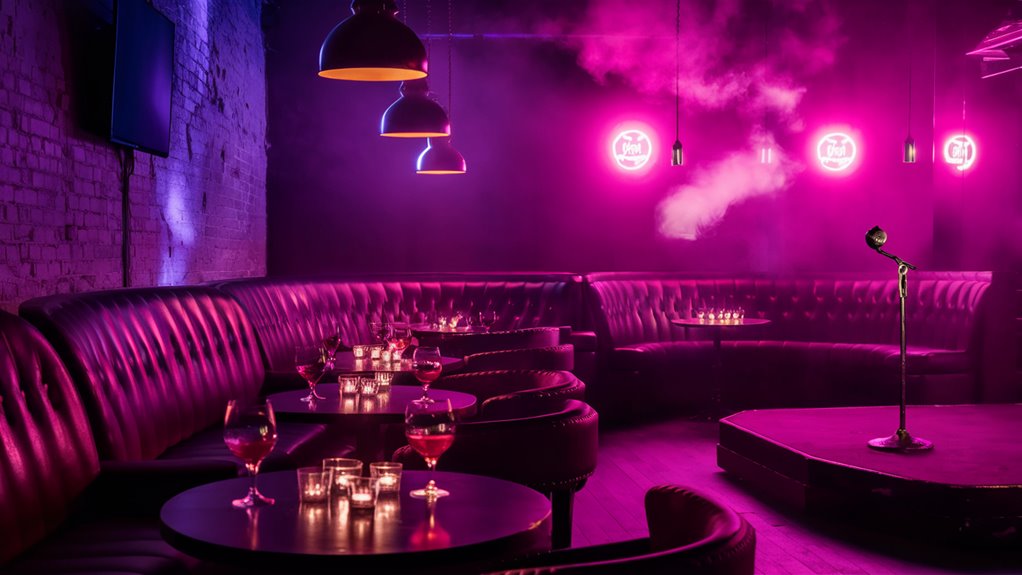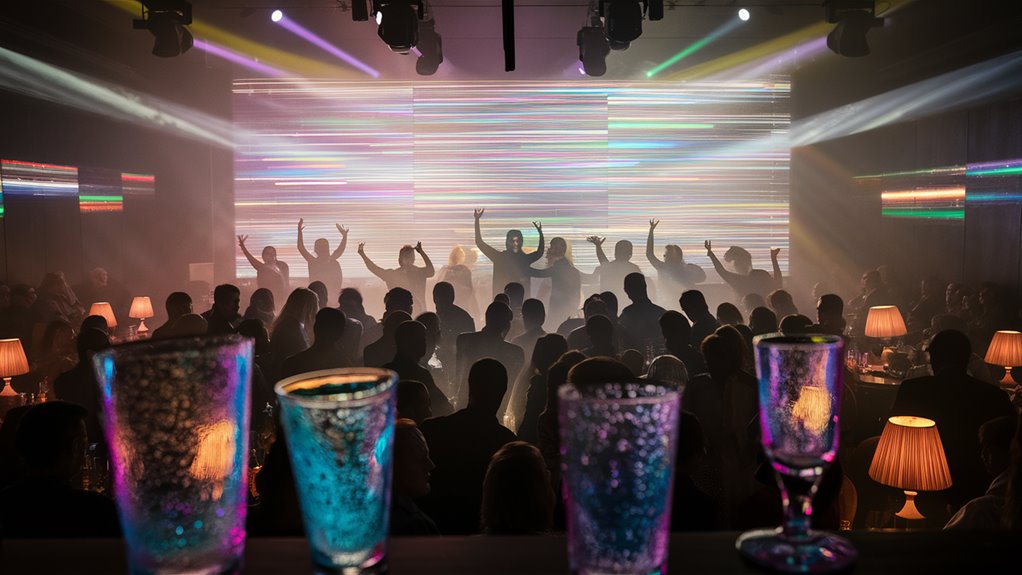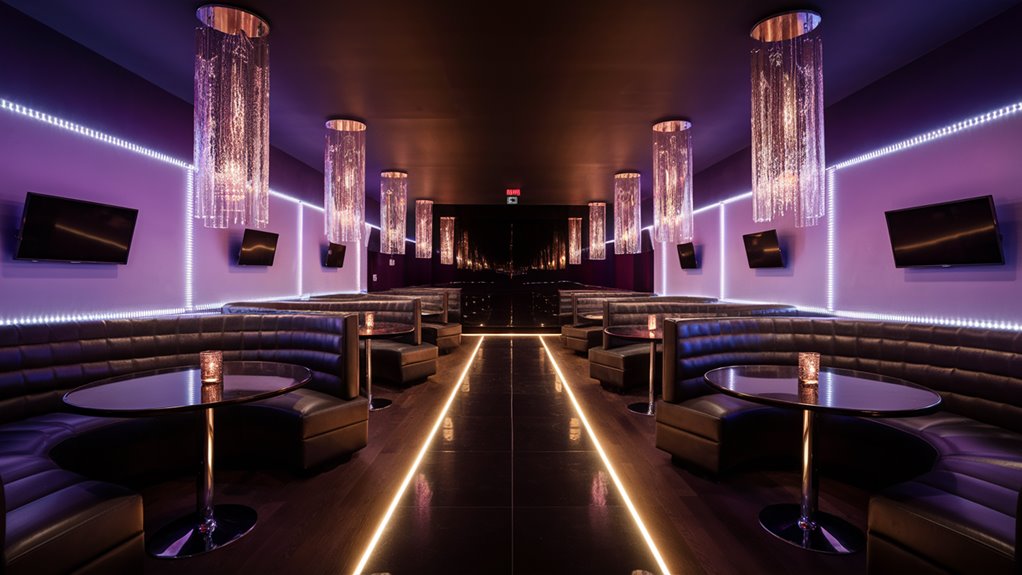
Karaoke Bar Fun: What You Need for a Great Time

To get the best karaoke bar feel, you need to look at both the tech and the space. Start with great sound gear and smart lighting, using a three-point light setup at 70% power for a clear view of the singer.
Lighting and Space Essentials
Soft lighting is key, using warm amber lights to draw people up to sing. A U-shape seating plan helps keep conversations going while everyone can see the stage. This layout lets people talk and makes the singer feel secure. Karaoke Room Sizes: Which One Fits Your Group Best?
Music Choices and Tech Details
A large song menu is crucial for success, featuring:
- Songs from many styles and eras
- New songs added regularly
- Quality backing tracks
- Well-maintained audio gear
Managing the People and the Flow
Skilled crowd management keeps the energy up all night by:
- Mixing up fast and slow songs
- Switching singers without a hitch
- Keeping the sound levels perfect
All these components create a fully fun space where everyone wants to sing. Good equipment, smart design, and active managing all contribute to a superb karaoke experience that keeps people coming back.
The Best Karaoke Light Guide
What to Know About Karaoke Lights
Professional lighting design needs a mix of general and targeted lighting.
LED lights that vary allow adjustments from warm to cool tones to match the song’s feel. Set key lights at 70% for lively songs and the audience area at 40% for comfortable viewing.
Spotlighting: Proper Setup and Usage
Expert spotlight strategies involve a three-spot system: a main front light and two side lights to avoid harsh shadows. This stage lighting setup keeps the singer visible without sharp lighting or losing details.
Room lighting should include clever amber lights on the walls, enough for choosing songs but maintaining a cozy vibe.
Effective Use of Colors and Setting the Mood
LED lights around are essential for drawing people into the performance. Set light colors to match the music genres:
- Deep blues and purples for slow songs
- Bright reds and yellows for lively songs
- Colors that shift with the beat
The right mix of these lights creates a perfect stage while keeping the audience engaged and comfortable.
Sound Systems and Mix for Karaoke Places

Basics on Sound Equipment
Correct sound setup is the base for any great karaoke place. The best setup relies on three main elements: clear mics, sound level control, and room audio design.
Mic Setup and Management
Choose top wireless mics that prevent unwanted noise. Have at least four mics two being used and two charging. Tune your mixer settings by:
- Removing unwanted sound frequencies 250Hz and 2.5kHz
- Enhancing vocal range 3-5kHz 현지인 추천 장소 알아보기
- Automatically detecting feedback
Volume Control and Music Playback
Set the main system volume at 75% to allow for adjustments. Background track volume should be slightly lower than the vocals, allowing singers to:
- Hear their own voice well
- Keep on tune
- Achieve a balanced sound mix
Speaker Placement and Room Acoustics
Strategic speaker placement greatly affects sound quality:
- Position main speakers high up
- Angle speakers downward for balanced sound
- Test sound throughout the venue
- Identify and fix sound dead zones
- Monitor and adjust hot spots
- Ensure sound is uniform
This thorough sound setup creates an immersive karaoke experience while avoiding common sound issues.
Optimal Karaoke Room Layout and Seating
Ideal Spot for the Performance Area
The main singing area is crucial in any karaoke room, best placed at one end of the room with clear views from everywhere. This perfect setup ensures everyone can see and join in.
Clever Seating Arrangements
Adopt a U-shaped seating layout around the singing area for a concert-like atmosphere. This arrangement focuses attention on the stage and keeps the crowd vibe positive. Include different types of seating like:
- Tall tables for standing groups
- Booths for close-knit groups
- Bar stools for flexible seating
Planning Movement Paths
Well-thought-out pathways are important for easy movement throughout. Key areas to consider include:
- Clear routes to the singing area
- Easy access to the bar and restrooms
- Song selection areas that are close but not too near the stage
- Lighting at tables for straightforward songbook reading
- Adjustable seating for different group sizes
This optimal use of space keeps the fun flowing and the operation smooth all night long.